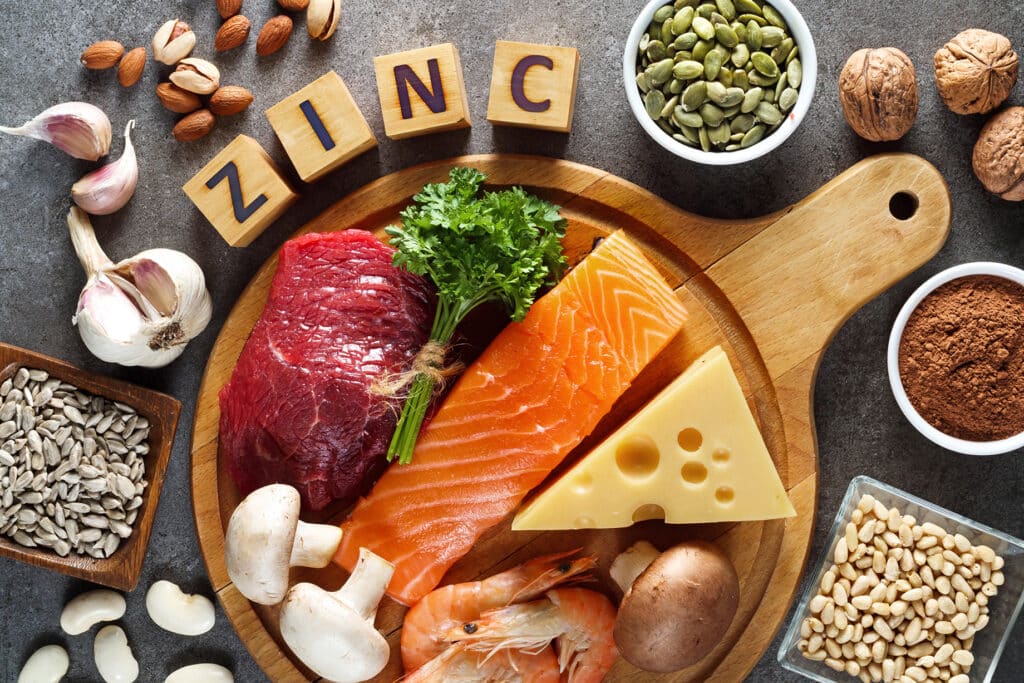Health Benefits of Zinc
Zinc is an essential mineral that plays a crucial role in many bodily functions. In this article, we will explore the numerous health benefits of zinc and how it can positively impact your overall well-being.
Zinc and Immune System
Zinc is well-known for its immune-boosting properties. It plays a vital role in the development and function of immune cells, helping to strengthen your body’s defense against infections and diseases. Research has shown that zinc supplementation can reduce the duration and severity of the common cold and other respiratory infections.
Zinc and Wound Healing
Another significant benefit of zinc is its ability to promote wound healing. It aids in the production of collagen, a protein that is essential for the formation of new skin cells and tissues. Zinc also possesses anti-inflammatory properties, which can help reduce inflammation and speed up the healing process.
Zinc and Skin Health
When it comes to maintaining healthy skin, zinc is a true champion. It helps regulate oil production, reduces inflammation, and promotes the healing of acne and other skin conditions. Additionally, zinc acts as a powerful antioxidant, protecting the skin from damage caused by free radicals and environmental factors.
Zinc and Cognitive Function
Studies have suggested that zinc plays a crucial role in cognitive function and brain health. It is involved in the regulation of neurotransmitters, which are essential for proper brain signaling. Adequate zinc levels have been associated with improved memory, attention, and overall cognitive performance.
Zinc and Eye Health
Zinc is necessary for maintaining good eye health. It is a component of the pigment melanin, which protects the eyes from harmful ultraviolet (UV) rays. Zinc also helps prevent age-related macular degeneration, a leading cause of vision loss in older adults.
Zinc and Fertility
Zinc is crucial for both male and female reproductive health. In men, it is involved in the production of testosterone and sperm, while in women, it supports proper egg development and hormone regulation. Adequate zinc levels have been linked to increased fertility and improved chances of conception.
Zinc and Blood Sugar Control
Research has shown that zinc plays a role in regulating blood sugar levels. It helps insulin, a hormone that controls blood sugar, function properly. Maintaining optimal zinc levels may contribute to better blood sugar control, reducing the risk of diabetes and its associated complications.
Zinc and Growth and Development
Zinc is essential for normal growth and development, especially in children and adolescents. It is involved in DNA synthesis, cell division, and protein synthesis, all of which are crucial for proper growth. Adequate zinc intake is essential during periods of rapid growth to support optimal development.
Zinc-Rich Foods
If you want to increase your zinc intake, consider incorporating the following zinc-rich foods into your diet:
Oysters
Beef
Chicken
Beans
Nuts and seeds
Whole grains
Dairy products

Zinc is a vital mineral that offers numerous health benefits. From boosting your immune system to promoting wound healing and supporting cognitive function, zinc plays a crucial role in maintaining overall well-being. Make sure to include zinc-rich foods in your diet or consider supplementation if needed, to reap the many advantages of this essential mineral.
Frequently Asked Questions about the Health Benefits of Zinc
1. What is zinc?
Zinc is a mineral that is essential for various bodily functions. It plays a crucial role in supporting the immune system, promoting wound healing, and aiding in DNA synthesis.
2. What are the main food sources of zinc?
Zinc can be found in a variety of foods, including meat, shellfish, legumes, nuts, seeds, and dairy products.
3. How does zinc benefit the immune system?
Zinc helps to boost the immune system by supporting the production and function of immune cells. It also has antioxidant properties that protect against oxidative stress.
4. Can zinc help with cold symptoms?
Research suggests that zinc supplements may help reduce the duration and severity of cold symptoms. However, it is important to consult with a healthcare professional before starting any supplementation.
5. Does zinc have any role in skin health?
Yes, zinc is involved in the production of collagen, which is essential for maintaining healthy skin. It also has anti-inflammatory properties that can help with certain skin conditions.
6. Can zinc improve fertility?
Zinc is important for reproductive health in both men and women. It is involved in hormone production, DNA synthesis, and the development of healthy sperm and eggs.
7. What are the benefits of zinc for hair?
Zinc plays a role in maintaining the health of hair follicles and promoting hair growth. It can help prevent hair loss and improve the condition of the scalp.
8. Is zinc beneficial for eye health?
Yes, zinc is important for maintaining good vision. It is involved in the metabolism of vitamin A, which is essential for proper eye function.
9. Can zinc help with mood disorders?
Some studies suggest that zinc supplementation may have a positive effect on mood and may help alleviate symptoms of depression and anxiety. However, more research is needed in this area.
10. What is the recommended daily intake of zinc?
The recommended daily intake of zinc varies depending on age, sex, and life stage. For adults, the recommended dietary allowance (RDA) is around 11 mg for males and 8 mg for females.




